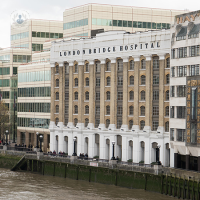Sarcoidosis
Dr Amit Patel - Pulmonology & respiratory medicine
Created on: 10-29-2018
Updated on: 09-14-2023
Edited by: Conor Lynch
What is sarcoidosis?
Sarcoidosis is a rare condition that can impact any organ in the body. It most often impacts on the lungs, lymph glands, eyes, and skin. It causes inflamatory areas called granulomas. Many people with sarcoidosis usually find that their symptoms improve without treatment over a few months or years. For those who find their symptoms have become worse and are severely affected, or have damage to the organs, treatment may be required.

What causes sarcoidosis?
The cause of sarcoidosis is not known and the trigger is uncertain. It may be a type of autoimmune disease associated with an abnormal immune response.
Normally, the body’s immune system releases white blood cells into the blood to isolate and destroy germs where there is an infection. This creates inflammation of the body tissues. The immune system then responds to anything in the blood that it does not recognise and calms down once the infection has been cleared.
In cases of sarcoidosis, the immune system has gone into overdrive and causes inflammation in its own tissues and organs. This causes the granulomas to develop in the organs. It is not fully known why the immune system behaves like this. Some environmental factors may trigger the condition.
What are the symptoms of sarcoidosis?
The symptoms can vary, depending on which organs are involved. Signs and symptoms of sarcoidosis include:
- cough
- breathlessness
- fatigue
- changes in the skin
- red, gritty, and/or watery eyes
- swollen or tender joints
- palpitations and/or episodes of dizziness or collapse
- Enlarged lymph glands in the neck, armpits and groin
- Enlarged lymph glands in the chest and lungs
How is sarcoidosis treated?
In the majority of patients, a period of observation is necessary without treatment. In those experiencing symptoms, steroid tablets are often prescribed, and in some, additional immune suppressing drugs are also used.
What lifestyle changes can help sarcoidosis?
The following measures can help manage the condition:
- Quitting smoking
- Avoiding exposure to dust, chemicals, fumes and gases
- Eating a healthy diet
- Regular exercise
- Drinking plenty of water







